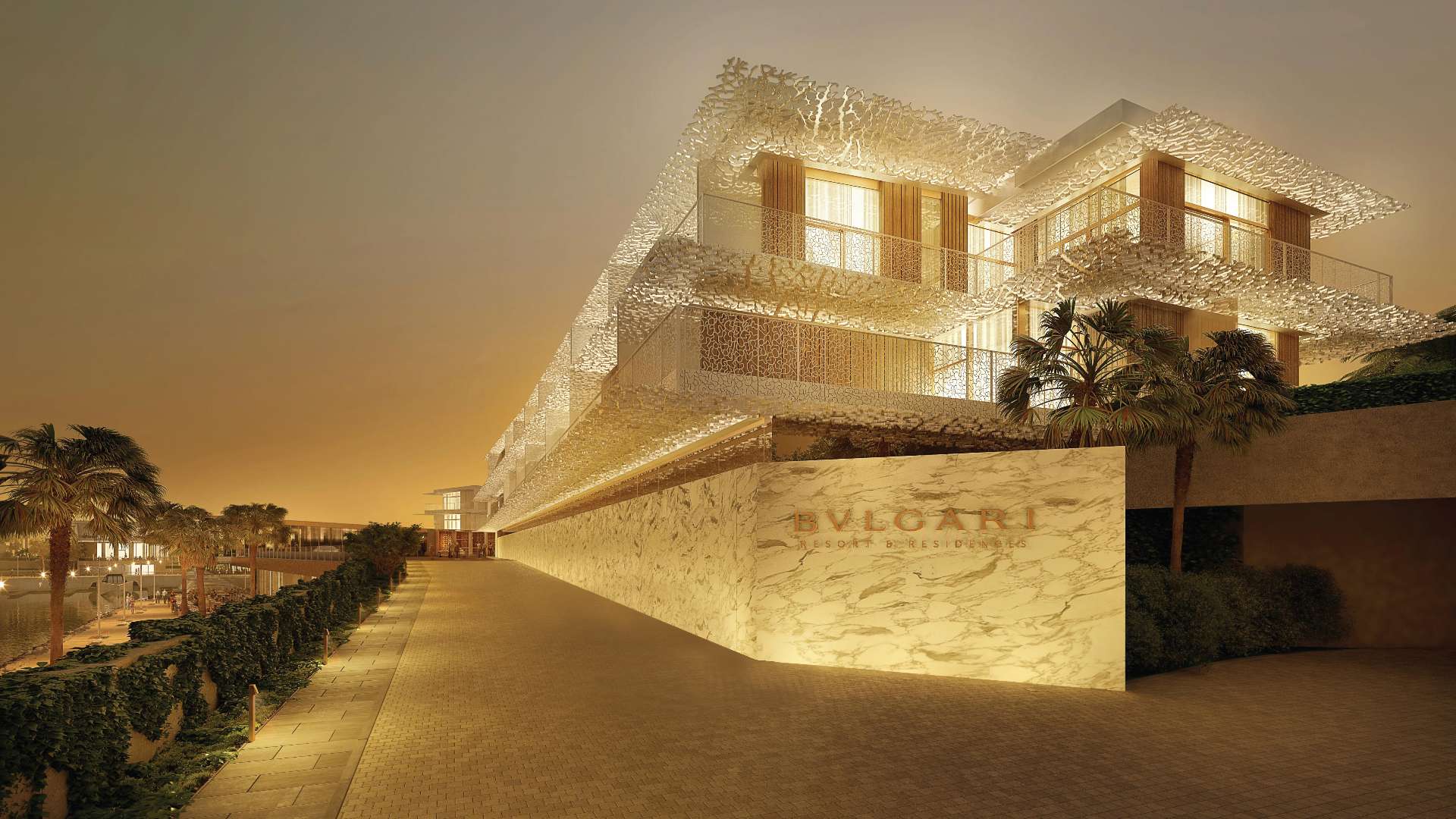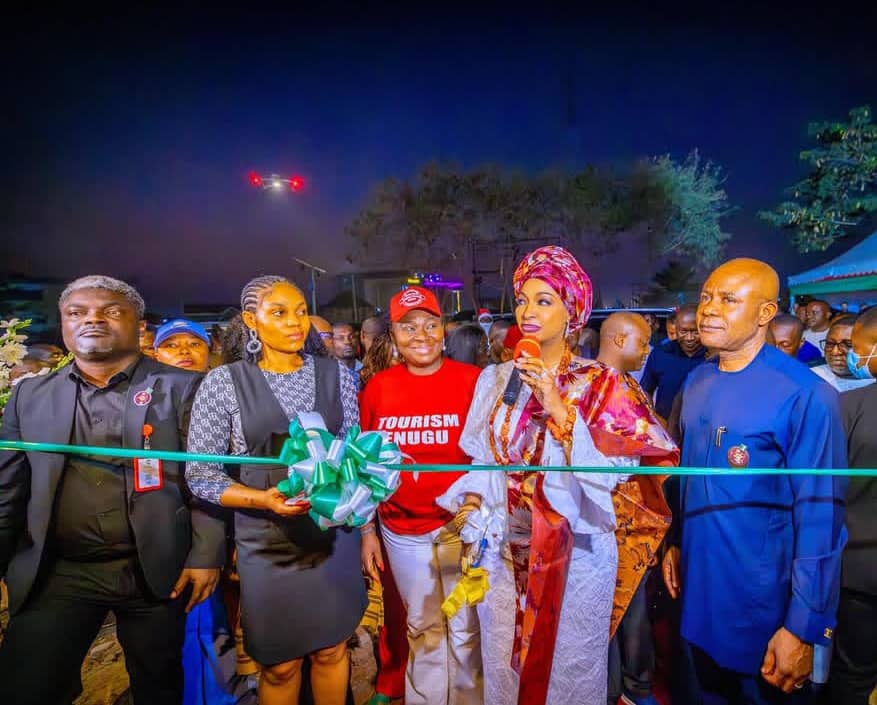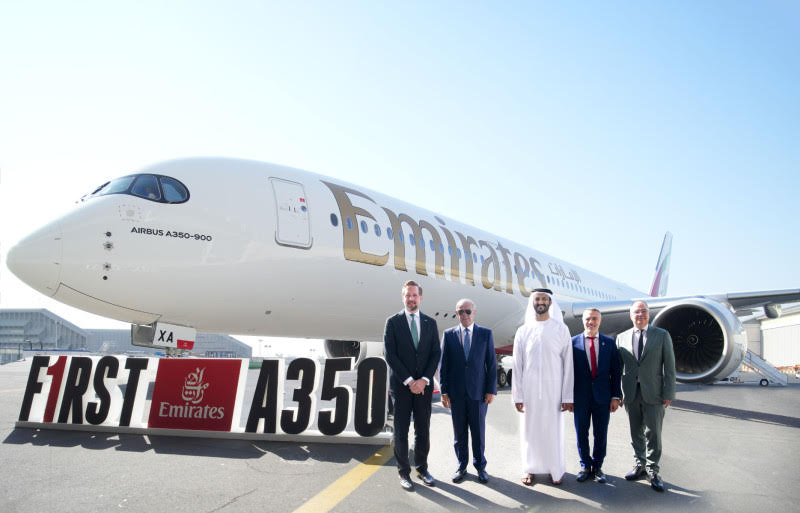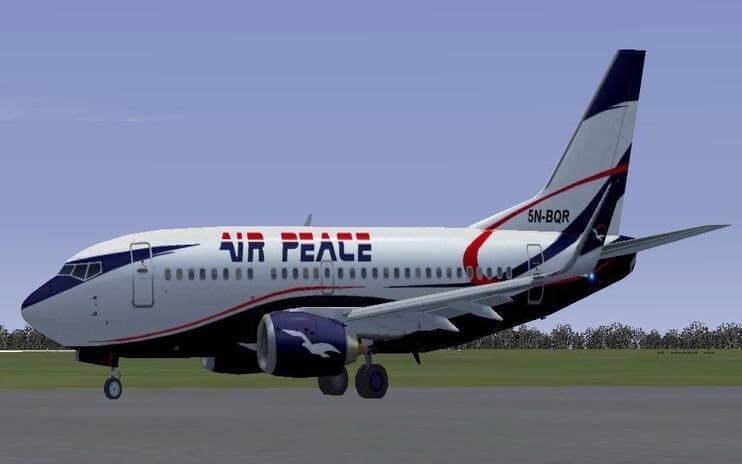Travel/Tourism
Dubai Targets 35.5m Occupied Hotel Room Nights by 2019

By Dipo Olowookere
Dubai’s diverse and vibrant hospitality sector is forecast to experience strong, sustained growth over the coming years, with occupied room nights set to reach 35.5 million annually in 2019, representing a robust 10.2 percent compound annual growth rate (CAGR) over the next 24 months.
According to a comprehensive study of the market by Dubai’s Department of Tourism and Commerce Marketing (Dubai Tourism), the emirate’s room supply is set to reach 132,000 by the end of 2019, growing at a 2-year (2017-2019) CAGR of 11.1 percent.
Meanwhile, occupancy levels are forecast to remain at an extremely healthy 76-78 percent despite growth in capacity, maintaining the attractiveness of the sector to hotel investors and developers.
The strong competitiveness of the sector is set to continue to be fuelled by increases in Dubai’s growing international overnight visitation and targeted increases in length of stays, supported further by recent and upcoming tourism attractions and experiences.
With concerted efforts to raise awareness in both established and emerging source markets, the duration of travel from new and existing segments are expected to see further growth in the medium term, positively impacting demand for room nights, which is in turn expected to outpace visitor growth over the coming 24-48 months.
“Dubai’s hotel industry remains at the forefront of cross-sector efforts to drive tourism growth, as we collectively work towards realising our Tourism Vision and enable our 2020 goals.
“Dubai’s position as the fourth most visited city in the world, and the consistent growth in overnight visitation, has been achieved in large part thanks to the efforts of our committed stakeholders in the domestic hotel and hospitality sector.
“With international and local investors, and operators continuing to actively pursue opportunities in Dubai, we expect to see not only sustained growth in inventory in line with our projected demand for occupied nights, but also further diversification across various asset classifications, to ensure that as a city we are the most globally competitive in providing our visitors the optimal range of options that cater to their preferences across the spectrum of hospitality offerings,” said Helal Saeed Almarri, Director General of Dubai Tourism.
At the end of 2017, Dubai’s hotel inventory stood at 107,431 rooms, with growth of 4 percent over the course of the year, and occupancy at a healthy and stable 78 percent despite capacity increase, thanks to the 6.2 percent growth in overnight visitors to 15.79 million.
The robust performance is particularly significant as it came amid challenging economic and political conditions across key source markets, including the volatility impact of fluctuating oil prices, Brexit and a strong US Dollar impacting Dubai’s global price competitiveness due to the fixed currency peg with the UAE Dirham.
Between 2013 and 2017, hotel inventory grew at a CAGR of 5.9 percent and a notable trend seen over that period was the development of more affordable mid-scale offerings, encouraged by Dubai Tourism incentives.
Building on the momentum since 2013, room inventory in the 3 and 4 Star categories is projected to continue to grow at 10 percent and 13 percent respectively through to the end of 2019.
This diversification of the hotel sector is part of the strategic focus on widening Dubai’s tourist base, enabling the city to attract larger volumes from new market segments across diversified source markets as evidenced by some clear preferences witnessed for more value friendly options suitable for longer stays and larger party sizes from key demand pockets.
Moving forward, further growth and demand for hotels and hotel apartments will be fuelled by the ongoing development of the overall tourism proposition in Dubai.
Following the 2016 introduction of Dubai’s theme parks – IMG Worlds of Adventures and the integrated Dubai Parks and Resorts – the properties have further enhanced the city’s attractiveness for families, while more recent additions such as Dubai Frame and Dubai Safari have already proven to be popular with both residents and visitors.
The 2017 opening of La Perle, the region’s first permanent theatrical show, added a fresh dimension to the cultural and entertainment scene in Dubai, while the Etihad Museum rounded off the historic side providing visitors with an immersive look at the story behind the formation of the United Arab Emirates.
One of the most integral supply drivers to support tourism growth is the aviation sector and Dubai’s evolution as a major tourism hub has been ably enabled by Dubai International Airport, which continued its reign as the world’s number one international airport in passenger traffic terms in 2017, delivering 88.2 million passengers, up 5.5 percent from 201 percent, with plans to expand capacity to 118 million by 2023.
Further growth in air traffic to Dubai will be also be fuelled by Dubai World Central, which in the longer term will ultimately have capacity to handle up to 240 million passengers a year.
Dubai’s retail sector also remained a core lever for tourism growth given that shopping has been a driver of tourist spend across most source markets.
As such, the planned infrastructure expansions reflect confidence in the demand from Dubai’s growing visitor volumes, with 900,000 square metres of new retail space set to come online through 2019, adding to the 600,000 square metres built between 2012-2017.
The size of the offering as well as its diversity – the emirate currently hosts 57.3 percent of global brands – has been furthered by Dubai’s Retail Calendar, which brings together the domestic industry around key retail-oriented festivals and seasonal activations to encourage greater consumption.
Travel/Tourism
Musawa, Governor Mba Commission Enugu Christmas Village

By Dipo Olowookere
The Enugu Christmas Village has been commissioned by the Minister of Arts, Tourism, Culture, and the Creative Economy, Ms Hanatu Musawa; and the Governor of Enugu State, Mr Peter Mba.
This development officially kicked off the holiday season in the state, giving residents and others from across Nigeria and outside the opportunity to relax in an atmosphere of love, positioning Enugu as a key destination for cultural and holiday tourism.
Facilitated by Omu Resort, a leading tourism promoter in Africa, the Enugu Christmas Village is set to become the heartbeat of holiday celebrations in the state.
The company has already organised a 25-day festival at the village designed to attract residents, visitors, and dignitaries from across the region.
With its vibrant atmosphere and festive attractions, the Enugu Christmas Village boasts an array of attractions such as a waterpark, roller skating, archery, amusement rides, and much more.
At its centre is a breathtaking display of 500,000 Christmas lights, illuminating the village in a magical glow that promises to captivate visitors of all ages.
The festival goes beyond the lights and rides, offering a rich tapestry of events that celebrate the state’s cultural heritage.
Highlights include Afrobeat Concert, Praise Night, Highlife Concert Street Carnival, Cultural Parade and a Grand Fireworks Show.
One of the most anticipated moments is the Santa Street Storm, where over 100 Santa Claus figures riding tricycles will parade through the streets, distributing gifts to orphanages and the less privileged, spreading joy and goodwill.
Running from December 7 to December 31, 2024, the Enugu Christmas Festival is more than just a celebration of the holiday season. It underscores the state’s cultural vibrancy and its potential as a leading tourist destination.
The festival offers a unique opportunity for families and friends to come together, celebrate, and unwind in a festive atmosphere. It is also expected to fosters unity and showcases the rich cultural heritage of Enugu State, while promoting arts, tourism, and community well-being.
Travel/Tourism
Emirates Unveils Airbus A350-900 in Dubai

By Aduragbemi Omiyale
One of the leading airline operators, Emirates Airline, has officially unveiled its first Airbus A350-900 at an exclusive event showcase in Dubai attended by aerospace partners, government officials and dignitaries, members of the media, as well as aviation enthusiasts.
The Emirates A350 features three spacious cabin classes, accommodating 312 passengers in 32 next-generation Business Class lie-flat seats, 21 Premium Economy seats and 259 generously pitched Economy Class seats.
The latest onboard products reflect the airline’s commitment to delivering a premium passenger experience while optimising operational efficiency. The Emirates A350 is the first new aircraft type to join Emirates’ fleet since 2008.
Apart from its newly delivered A350, Emirates operates two other aircraft types around the world to 140 destinations – the widebody Boeing 777 aircraft and the iconic ‘double decker’ Airbus A380 aircraft.
The A350’s introduction will enable Emirates to expand into new destinations globally, including mid-sized airports unsuited for larger aircraft. The Emirates A350 will be delivered in two versions – one for regional routes and one for ultra long-haul routes.
The Emirates A350 takes technology to another level. Customers can now adjust their electric window blinds at the touch of a button.
The aerBlade dual blind system will feature in Business and Premium Economy Class offering two shaded options, and the aerBlade single blind systems will make a debut in Economy Class, with all blinds showing the Emirates Ghaf tree motif when closed.
Business Class on the Emirates A350 will feature 32 luxurious leather ‘S Lounge seats’, inspired by the Mercedes S Class for an exceptional travel experience. The A350 aircraft will feature brand new additions of wireless charging on the side cocktail table in Business Class, and in-seat lighting controls with 5 streams of light. The 1-2-1 seat configuration in the A350 Business Class ensures a very private, exclusive experience.
Speaking at the event, the chairman of Emirates Airline, Mr Ahmed bin Saeed Al Maktoum, said, “Today is an exciting milestone for Emirates as we showcase our first A350 and usher in a new era for our fleet and network growth.
“This aircraft sets the stage for Emirates to spread its wings farther by offering added range, efficiency and flexibility to our network, enabling us to meet customer demand in new markets and unlock new opportunities in the cities that we serve.
“Onboard, our updated interiors and seating configurations will help us deliver a more elevated and comfortable experience to travellers across every cabin class.
“The 65 Emirates A350s joining our fleet in the coming years fit into the airline’s broader plans to support our visionary leadership’s Dubai’s D33 Strategy, which will transform the city into a pivotal hub in the global economy by expanding its connectivity and reach.”
Travel/Tourism
Air Peace Employees Undergo Training at Boeing Global Learning Institute

By Aduragbemi Omiyale
Some employees of Air Peace have upgraded their aviation safety skills at a training course organised by Boeing through the Boeing Global Learning Institute (BGLI) in collaboration with Cranfield University, United Kingdom as part of a shared commitment to shaping the future of aviation leadership.
Over the years, Air Peace has recognized that a deep, unwavering commitment to safety is key to its continued success.
The programme is aimed at building upon that vision, enabling executives to lead with confidence, manage risks effectively, and create high-performing teams that prioritize safety at every level.
In the five-day in-person training, all the executives and others in the various departments of Air Peace were taught advanced safety leadership skills and gained practical tools to implement the new knowledge.
The Head of Aerospace at Cranfield University, Prof Graham Braithwaite, said, “This collaboration ensured that the training directly addresses the challenges Air Peace faces, culminating in real-world capstone projects that would have a lasting impact.”
Reinforcing this position, the Lecturer for Organisational Resilience and Change at Cranfield School of Management, Fabian Steinmann, who was excited at the great progress Air Peace made over the years, said that they are happy to learn and share knowledge and find ways to strengthen the system, making it robust and flexible to adapt to the ever-changing environment.
“Safety is at the heart of everything we do at Cranfield so the privilege we have is that we travelled around the world, picked up the good practices, learned more about the culture and the operation in various countries so we’re here to facilitate that exchange with Nigeria and Air Peace to see how we share some of the good practices and lessons learned from all around the world and translate them into their operation.”
Also, the Senior Organisational Consultant and Programme Manager at Boeing Global Learning Institute, Harry Magui, said, “The Boeing company has long recognised the importance of supporting continuous learning of our aviation partners.
“To that end, the Boeing Global Learning Institute designs and delivers numerous learning programmes to both emerging and established leaders of our partners.
“These efforts aim to develop leadership, business, and technical skills so that our partners can improve their business processes, increase operational efficiency and enable leaders to strengthen their teams to ultimately grow their business.’
Alluding to the great work Air Peace has done in making safety a pre-condition rather than just a priority, Magui said, “We’re here to partner with our great partner, Air Peace who have been phenomenal in advancing the Aviation Industry in Nigeria, so we are here to support them to harness more opportunities in the future with the Advanced Leadership in Safety Excellence Training for all its top leadership within the organization.”
The Safety Manager at Air Peace, Captain Godfrey Ogbogu, said, “This class is quite essential and we’re lucky to have our resource persons impact knowledge on us. It is a well-structured training, especially for Air Peace because of where we are now and where we hope to go in the future.
“The whole essence of this class is to reinforce what we know before and be exposed to other avenues of learning. The aviation industry is ever-changing and dynamic, and Air Peace has to be abreast of such developments.”
-

 Feature/OPED5 years ago
Feature/OPED5 years agoDavos was Different this year
-
Travel/Tourism8 years ago
Lagos Seals Western Lodge Hotel In Ikorodu
-

 Showbiz2 years ago
Showbiz2 years agoEstranged Lover Releases Videos of Empress Njamah Bathing
-

 Banking6 years ago
Banking6 years agoSort Codes of GTBank Branches in Nigeria
-

 Economy2 years ago
Economy2 years agoSubsidy Removal: CNG at N130 Per Litre Cheaper Than Petrol—IPMAN
-

 Banking2 years ago
Banking2 years agoFirst Bank Announces Planned Downtime
-

 Sports2 years ago
Sports2 years agoHighest Paid Nigerian Footballer – How Much Do Nigerian Footballers Earn
-

 Technology4 years ago
Technology4 years agoHow To Link Your MTN, Airtel, Glo, 9mobile Lines to NIN











